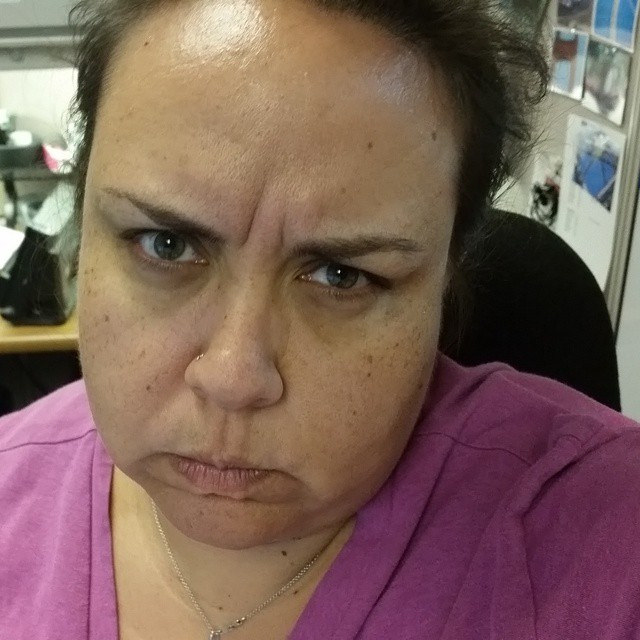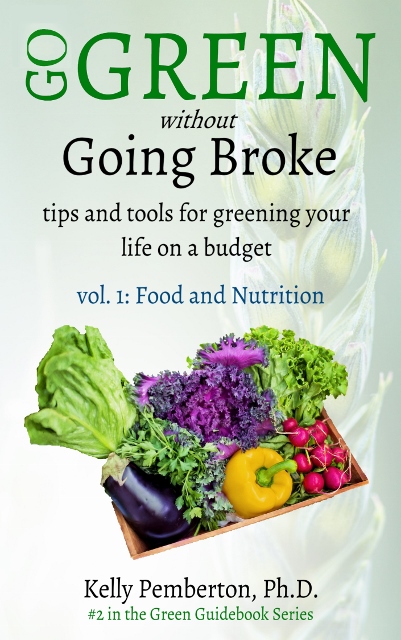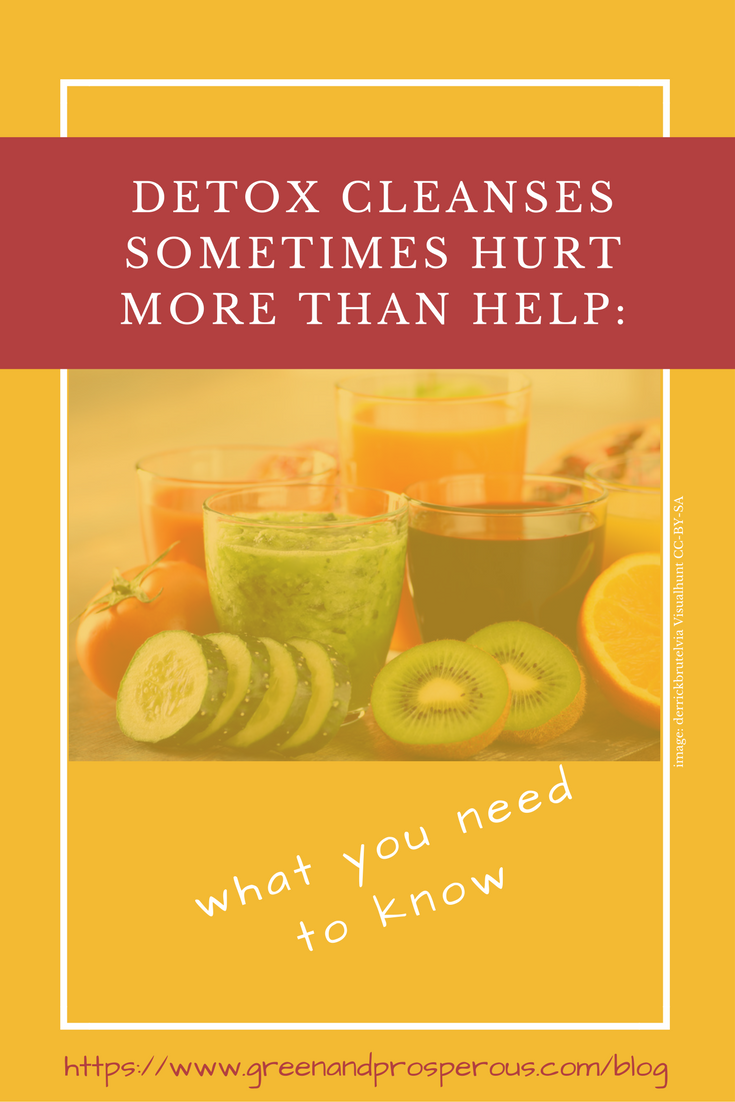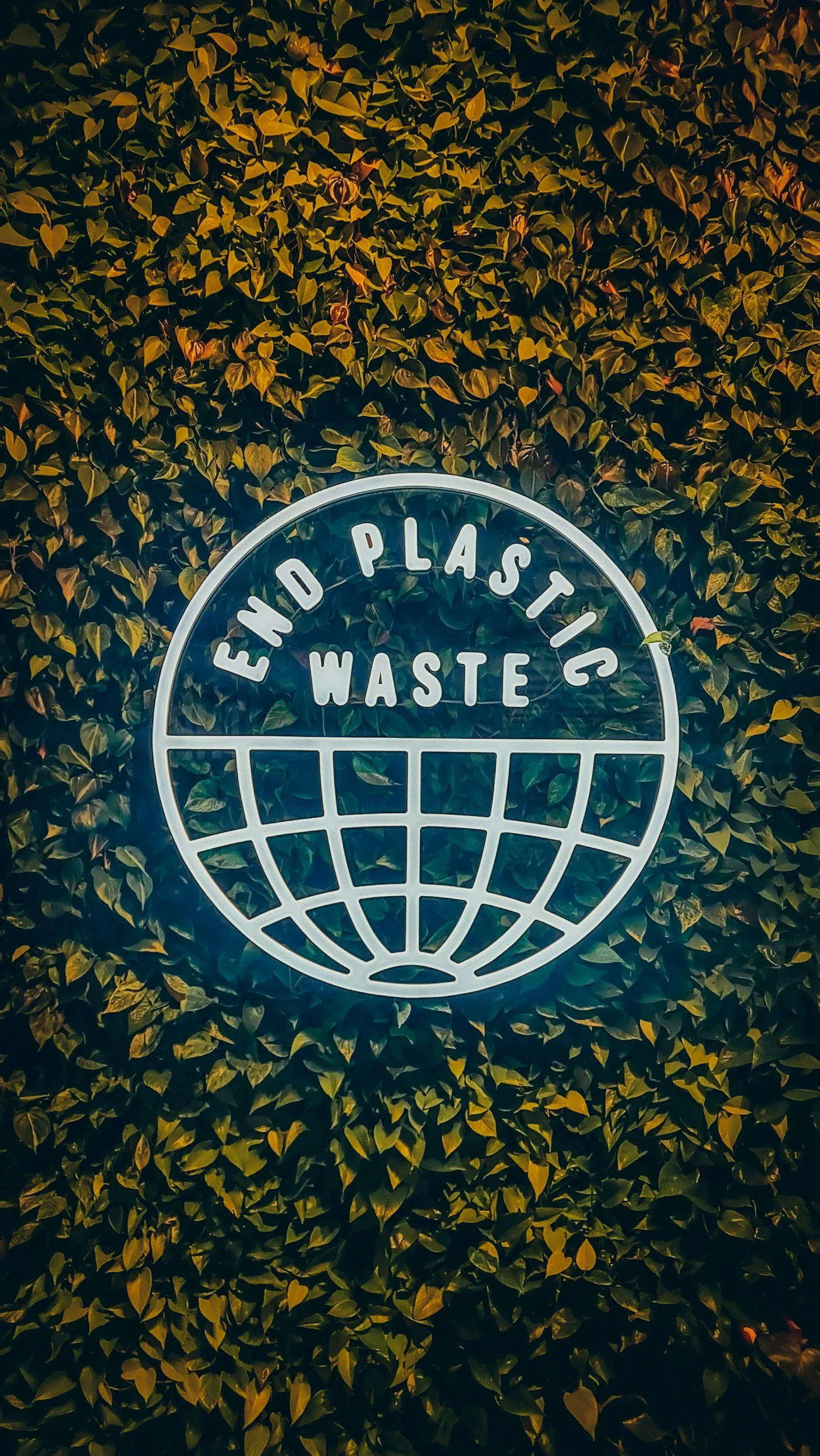Detox cleanses sometimes hurt more than help: what you need to know
/Detoxing: an old remedy for good health?
The idea of detoxing - purging the body of poisons and other harmful substances, to bolster the immune system, eliminate fat and increase energy levels – has been around since at least the early 1900s. These days, it is more popular than ever, thanks to a gaggle of celebrity endorsements of popular diets. A quick search on Amazon.com turns up hundreds of books, cleansing products, herbs and nutritional supplements to help you cleanse your way to good health.
Before having kids, I used to detox at least a couple of times a year. I’d usually fast using water, broths, and freshly-juiced fruits, alongside detoxing powders or tablets containing ingredients like psyllium husks, which stimulate the body’s elimination system. Like others, I felt better and more energized immediately afterwards. Years later, I wonder if all that detoxing might have done more harm than good. For years I suffered off and on from hypoglycemia (low blood sugar), and still occasionally have episodes if I don’t watch my diet carefully.
Doctors and many nutritionists have amply warned that long-term or frequent detoxing diets can harm the body and cause sustained health problems. People with certain health conditions such as heart disease, high blood pressure, and blood sugar disorders, or who are pregnant or nursing should not detox at all. (Most detoxes involve severely restricting the diet to liquids or purees for days or weeks at a time). However, a vocal minority of medical professionals claim that detoxing, done sensibly and in moderation, can enhance the body’s natural abilities to rid itself of harmful substances.
There is no doubt that we are all exposed to harmful chemicals every day. This is a result of the increase in the number of toxins in the environment as well as the widespread consumption of processed foods that don’t provide adequate nutrition, robbing the body of its innate capacity to self-renew. However, there are ways to enhance the body’s own capacity to rid itself of toxins without some of the nasty health effects of so many detox regimens. Here are 6 things to keep in mind if you are interested in detoxing.
Your detox doesn’t have to be restricted to liquids. The most restrictive detox diets restrict you to “cleansing” juices, teas, and broths. Some even reduce you to consuming only water – copious amounts of it – over a period of days. These may do more harm than good, putting added stress on your body’s organs or filling you with excess sugar without the balance of fiber needed to help your body absorb it, because juices that consist entirely of extracts of fruits eliminate the best part of the fruit (the pulp), leaving you with a lot more of the sugar than you may realize. Consuming sugary liquids can cause your blood sugar to rise rapidly then plummet. If your blood sugar levels drops too low it can cause a reaction known as hypoglycemia. Hypoglycemia may leave you feeling dizzy, mentally confused, hungry, or tired. It may cause headaches irritability, or sleepiness, and in severe cases, can cause you to faint or have a seizure. Alternatives to liquid-only detoxes include regimes that focus on incorporating foods that naturally detox the body’s organs. This article by Millie Lytle for Mind Body Green discusses how particular foods work to detox specific organs of the body.
Plan to feel tired and use the bathroom a lot. Because detoxing involves suddenly withdrawing the food and drink that the body has become used to, then gradually reintroducing it, the body may experience some withdrawal-like symptoms. This means that if you are used to drinking coffee or caffeinated tea in the morning and suddenly stop, your body may be sluggish at first. A lack of the normal amount of calories that you are used to taking in on a regular day of eating also results in a lack of energy and feelings of lethargy. Some of the colon cleanses that are recommended for detoxifying the body cause you to visit the bathroom frequently. Alternatively, if you consumed a high-meat, a low-fiber diet, and switched to higher fiber intake during the detox, you’ll have more frequent bowel movements than before.
Photo credit: Angel 3937 via Visualhunt / CC BY-NC-SA
You may experience irritability and bad breath while detoxing. A lot of us get grumpy when we haven’t eaten in a while, and it’s no different if you are detoxing in a way that severely restricts your calorie intake. Some say that this irritability is caused by the toxins that are in your system, and that a release of all kinds of emotions can accompany a detox (because of the connection between physical and emotional health). While this is debatable, it’s true that if the detox was done in a way that suited your particular health needs, you’ll feel a better – physically and emotionally – at the end of the detox. To deal with the irritability that arises during the detox (especially at the beginning), prepare yourself mentally beforehand, and engage in activities that can support your mood – yoga and meditation, and other forms of light exercise, for example. Get plenty of sleep, and try to reduce your external sources of stress. For the bad breath that may accompany detoxing (it’s a result of the buildup of acids in the digestive tract), use a tongue scraper (available in drug stores) and chew on mint leaves or gum. It’s even more important during a detox to practice good dental hygiene, brushing twice a day and flossing at least once daily.
Most popular detox diets take a one-size fits all approach. There are a lot of popular detox diets out there that individual people (and celebrities) will swear by, but there’s no way to know for sure if any given detox diet will have the effect you seek, or whether it will cause you more harm than good. While most diets recommend fasting or severe calorie restrictions, this may not be feasible for you, especially if you have a lifestyle that requires a lot of energy (e.g. young kids that need a lot of your attention). Also, some of the supplements or colonic cleanses you take during cleanses can cause bloating, cramping, dehydration, nausea, or vomiting. The best way to approach a detox diet is in consultation with a licensed, experienced nutritionist and your primary care doctor. Have a physical if possible before embarking on a detox, and find out if you have any nutritional deficiencies or ailments (e.g. high blood sugar) that may be aggravated with the detox you’re planning to undertake.
Photo credit: KJensifyme Healthy via VisualHunt.com / CC BY-SA
Most detox diets help you lose weight – but only temporarily. You’ll probably lose a few pounds on a detox diet (severe calorie restriction will do that!), and some of that will be water weight, but you’ll just gain the pounds back once you begin re-introducing regular foods into your diet. However, there is some reason for optimism: a 2013 Korean study of overweight women in which the subjects went on the “lemon detox diet” did show a reduction in body weight, body mass index, percentage of body fat, and waist-hip ratios in the study participants. However, these results were unique, and most people who embark on a detox diet don’t do so under clinical supervision. As with any diet, the problem is that it is usually approached as a temporary or “quick-fix” solution, without the necessary lifestyle changes that will bring about lasting effects. The best detox diet is one that isn’t a diet at all, but incorporates healthy eating habits, regular exercise, ample sleep at night, stress-reduction techniques, and efforts to create a balanced lifestyle.
You can achieve most of the same effects by making some key changes to your diet and lifestyle. Again, detoxing is a temporary solution to what is, for many of us, a lifestyle problem. Rather than embarking on a radical few days’ detox, it’s much more effective to practice a healthy lifestyle. Avoiding toxins in personal care products and household cleaners, switching away from processed foods and towards whole and organic foods as much as you can, developing nutritional strategies (preferably with a licensed nutritionist to achieve optimal gastrointestinal health), incorporating the kinds of foods in your diet that help the body’s natural detoxifying processes, cutting down on the kinds of food that lead to chronic inflammation, and paying attention to stress levels and sleep duration (and quality of sleep) go much further in the long term than any short-term detox can.
Want to know more about how to jump-start (or improve) your healthy lifestyle? The latest Green Guidebook can help! On sale on Amazon.com for $4.99 (ebook) or $9.47 (paperback). Better yet, buy the paperback and get the ebook for only $0.99!
Like this? Please pin!









































